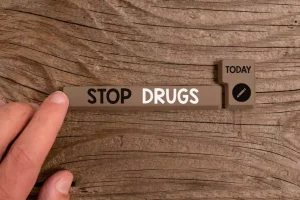When we are about to do something or actually do something that goesagainst this value system, we feel guilty. Guilt warns us that we need to stopand do something different. The fourth step to addressing guilt and shame in recovery is practicing social hygiene.
Evidence-Based Approaches in Addiction Rehabilitation

It entails making peace with a former self and admitting that it is simple to chastise oneself in retrospect for having had less insight at the time. As difficult as it may be to cultivate compassion as a remedy for shame, it is a task that must be met. There must be more emotional intelligence in the face of this potentially crippling feeling through open exploration and discussion of shame and anger toward oneself, others, and circumstances. He stepped on my foot and looks like like it’s no big deal. And so it ends up leading to a breakdown in relationships because the person that shamed they don’t necessarily look like they’re alarmed because they’re in a freeze response. I think about this sometimes and I would say this to parents, is that when your son or daughter is trapped in an addictive cycle, you can bet your bottom dollar.
- “Judgment and criticism from the family could further shame and traumatise women recovering from drug abuse,” said Dr Yong, noting that relationships can serve as a “double-edged sword”.
- While you should take stock of the errors made and make amends to those you might have hurt, it’s important not to get stuck in the past and then allow those memories to shape your present.
- Was there a legitimate cause for your past actions that was beyond your control at the time?
- I have referred to guilt and shame as “feelings,” but they are really a series of thoughts.
- Taking time to differentiate guilt from shame allows you to first address the most impactful beliefs.
What Are the Stages of Substance Use Relapse?
- Shame and guilt are common emotions, and we’ve all experienced them many times.
- Practice self-forgiveness and recognize that everyone makes mistakes.
- Shame involves the perception of oneself as a failure or feeling unacceptable to others.
- However, its effectiveness for addressing various mental health issues has led to its widespread use today.
- Most people deal with them successfully, but for those with a substance abuse disorder, guilt, and shame can fuel their addictions.
Addicts tend to act in negative ways, leading to more guilt and shame and pushing them deeper into addiction. This is exactly why breaking free from addiction and shame are vital. Here’s the role of shame and guilt in addiction recovery, along with how to process shame and regret of addiction; necessary to recover. Both shame and guilt carry unique effects for each individual. Differing coping strategies will be used to overcome them.
- These ideals permeate various aspects of life, transcending cultural boundaries and manifesting in our family and community lives, workplaces, leisure activities, and beyond.
- We recognize that letting go of past mistakes and accepting ourselves can be incredibly challenging.
- Social hygiene started in the last century as a movement to address vice, prostitution, and sexually transmitted diseases.
How Do You Deal With Shame And Regret?
Now you may find that you are equally critical of yourself and equally unforgiving. To continue, upgrade to a supported browser or, for the finest experience, download the mobile app. “There was one time when my daughter said she saw posters of me (for an anti-drug campaign) at an MRT station. I asked if she felt embarrassed,” said Ms Syamlia, with a big smile on her face. “I told my mother that if everyone were to be ashamed of telling their story, then how will those who are stuck, especially the young people, know how to get out?
Oftentimes, people entering addiction recovery programs have already fallen short of their personal standards.
In the case of the individuals with whom I worked, their lives sometimes led to multiple incarcerations. They often speak of the embarrassment of getting arrested and coming to prison yet again all due to not being able to leave their drug of choice alone. During my time in active addiction, I had to learn to deal with the feeling of guilt and shame for what my life had become. I had become the individual whom I never thought would exist. I had become a manipulator of my own emotions and would often do whatever it took to obtain my alcohol to satisfy my addictive thought patterns and behaviors. Many people list issues with “guilt and shame” as a critical factor related to substance abuse issues and addiction.

Combating the Guilt and the Shame of Addiction
- “There was one time when my daughter said she saw posters of me (for an anti-drug campaign) at an MRT station.
- Self-compassion requires us to consciously acknowledge and accept the pain caused by our previous wounds.
- But in “I am a failure” or “I will always be a failure,” failure is a trait, an internal and unshakable characteristic.
You can’t even make eye contact with somebody that’s too vulnerable. What happens for me when I’m ashamed, like if I step on your foot, if if I was trapped in shame, I literally want to crawl into a hole. And so ironically, and sadly it leaves the other person feeling betrayed. Gosh, Clint says I thought Bob cared about me, but he doesn’t give a rip about me. I personally believe that regret and we may talk later about guilt, I believe that regret and guilt are right and necessary for healing. And, by regret, what I mean is, is deep sorrow, deep sorrow for the wrongs we’ve done.

Are other mental health conditions associated with shame and guilt?

Let’s dive into Professional Treatment Options for Shame and Guilt -because healing requires support beyond one’s own effort. Forgiving oneself does not mean condoning wrongdoing but is rather about accepting responsibility for past actions while recognizing that one has the ability to make amends and grow from those experiences. Practicing Forgiveness Towards Oneself is a crucial aspect of addiction recovery that deserves attention.
However, shame and stigma prevent many from getting diagnosed and receiving the help they need to manage their symptoms. And I really want to recommend this to any parent or family member that’s viewing this, what Dr. McCauley talks about. He also is not only a physician, but knows addiction from the inside, and has committed to recovery for years and years, he’s made a huge amount of difference in the recovery world only to his story. And this would follow from Stephen Porges, his research on the gut brain, you think about shame, what is shame?
Guilt and shame can be powerful emotions that can negativelyaffect our ability to move forward in life. Holding on to feelings of guilt andshame keeps us stuck in the past. Addicts generally have difficulty, especially in early recovery,coping with any feelings that we perceive as negative. Until you developappropriate coping skills, it can seem like your only option is to cover upthese feelings by returning to your addiction. Facing these feelings,correcting our wrongs, asking for forgiveness and forgiving ourselves are waysto let go of the past so you can grow as a person and fully live in the presentmoment.